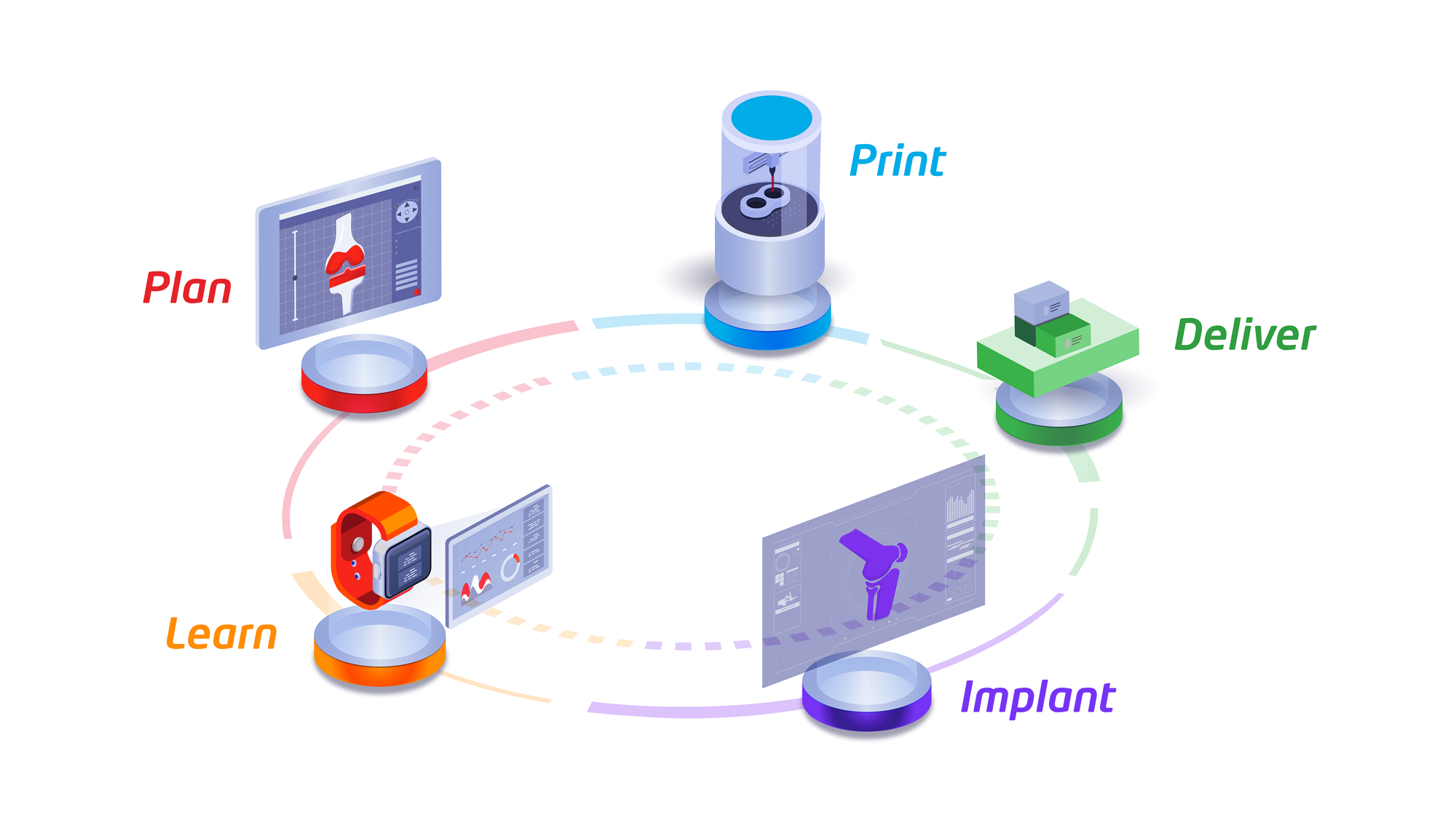Faster, Safer, and More Personalized Surgeries
The main focus of orthopedic surgeries today is faster surgeries, improved outcomes, and satisfied patients. However, many things stand in the way of achieving this goal.
Posts about:

The main focus of orthopedic surgeries today is faster surgeries, improved outcomes, and satisfied patients. However, many things stand in the way of achieving this goal.

At Enhatch, we strongly believe that open, digital ecosystems will deliver a universe of innovation to enhance the future of surgery, not only for orthopaedics but the entire medical device industry.

Knee replacement surgery is one of the fastest-growing procedures in recent years. While total knee surgery is successful and quite common, nearly 20% of patients are dissatisfied with their results after total knee surgery.

AI is here to stay, and the Covid-19 pandemic accelerated the adoption of AI in healthcare. Organizations are increasingly using AI to help reduce costs and enhance customer experience, including the world of supply chain.

Spine surgeries have been slower to transition to an outpatient setting because of their complexity. However, some spine procedures are now considered lower risk and safe for Ambulatory Surgery Centers (ASC).

Spine surgeons today face a much larger surgical burden than ever before. Case complexity and volume of surgeries are on the rise. Meanwhile, a changing healthcare system is rapidly reducing the amount of time available for surgeons to address these issues. Surgeons are expected to increase the number of surgeries they perform. This growing pressure may shorten the time available for preoperative planning.

Henry Ford is associated with intelligence, but not artificial intelligence (AI). After all, AI was born a year before his death. However, in his heyday, Ford went against popular opinion and introduced innovative ways to reduce employee burnout in his factories. This type of disruptive innovation is what AI can bring right now to help heal the U.S. healthcare system, including the field of Orthopedics.

Medical device companies are under pressure to do more with less.
The healthcare system is focused on patient-centricity, which means having to sustain a high quality of service. Additionally, market competition between device companies is fierce, there are more regulations than years prior, and reimbursements continue to drop.
Medical device companies must meet customer expectations, continue to innovate and stay competitive while lowering costs. Artificial Intelligence (AI) can be the balm to ease some of the burdens on medical device manufacturers.

SUMMARY POINTS

One secret to faster, safer, and more accurate orthopedic surgeries? Extensive preoperative planning for orthopedics. While it’s common for medical device companies, surgeons, and hospitals to utilize pre-op planning software and rely on this process, technology in this space is quickly changing.
